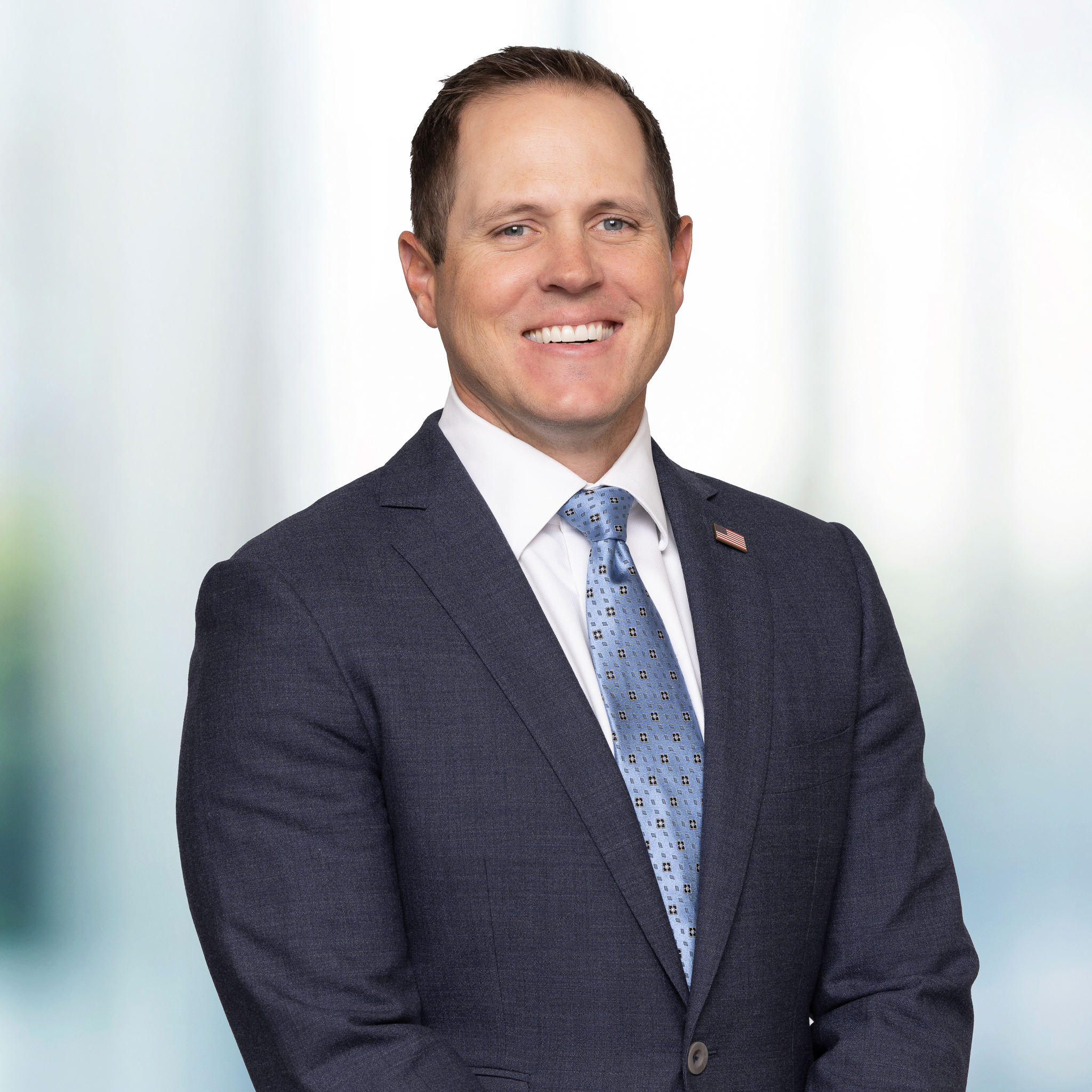The dynamic landscape of wealth management and financial planning requires proper guidance from a skilled financial advisor—especially with the ever-changing trends and regulations.
These professionals serve as navigators, helping you make informed financial decisions. However, there are many kinds of financial advisors, each holding different certifications and unique expertise that shines in a particular area of wealth management.
With that, read below to learn the different certifications for financial advisors to help you choose one that meets your financial needs.
What Do These Designations for Financial Advisors Mean?
Certifications for financial advisors represent a professional’s expertise and specialization. These designations show that the financial advisor has undergone a thorough screening process, ensuring their credibility. Deciphering the meaning behind each acronym of these designations is essential to help you decide which financial advisor you should work with.
For instance, a Chartered Financial Analyst (CFA) often excels in comprehensive financial planning. Meanwhile, a Certified Public Accountant (CPA) is adept at navigating complex tax matters. These acronyms are more than just credentials; they embody a practitioner’s unique skill set and provide a roadmap to their proficiency.
Moreover, these designations have governing bodies regulating their practices. The Certified Financial Planner Board of Standards (CFP Board), the American Institute of CPAs (AICPA), and the CFA Institute are among the entities responsible for maintaining the integrity and standards of these designations. They ensure financial advisors adhere to ethical practices and follow industry standards.
12 Types of Certifications for Financial Advisors
Each certification is a testament to an advisor’s specialized knowledge and skills and commitment to excellence in wealth management. Understanding these designations empowers you to navigate the complexities of hiring financial advisors, letting you choose professionals with expertise that aligns with your unique financial goals.
1. Certified Financial Fiduciary (CFF)
Governed by the National Association of Certified Financial Fiduciaries, professionals with this certification adhere to stringent ethical standards, one that is client-centric. Financial advisors with this designation emphasize their dedication to acting in your best interests.
CFFs play a pivotal role in safeguarding financial well-being by prioritizing fiduciary responsibilities. They conduct thorough research and due diligence when crafting an investment plan that aligns with your financial interests.
2. Certified Financial Planner (CFP)
The CFP designation is widely recognized and signifies expertise in comprehensive financial planning. The CFP Board awards this to those who have undergone rigorous financial planning studies and thorough screening. Thus, CFPs have the necessary skills to navigate a diverse financial landscape, often offering holistic guidance on investments, insurance, and retirement planning.
3. Certified Funds Specialists (CFS)
For those handling mutual funds and investment portfolios, the CFS designation for financial advisors stands out. Professionals holding this title, as certified by the Institute of Business & Finance, demonstrate a nuanced understanding of fund management. They are adept at optimizing your investment strategies for better returns.
4. Certified Investment Management Analyst (CIMA)
The Investments & Wealth Institute awards the CIMA certification to professionals specializing in investment management. CIMA holders exhibit a high level of competence in portfolio construction, risk management, and asset allocation, giving you peace of mind knowing your investments are in good hands.
5. Certified Public Accountant (CPA)
The CPA designation is a cornerstone for many financial professionals in accounting and taxation. CPAs follow the standards set by the AICPA. Moreover, they possess a deep understanding of financial statements, tax codes, and regulatory compliance, making them invaluable partners in navigating complex financial matters.
6. Certified Tax Planner (CTP)
A CTP is a specialist in tax planning, equipped to optimize your strategies for lower liabilities. This designation, often obtained through organizations like the American Institute of Certified Tax Planners, signifies a professional’s expertise in minimizing tax liabilities through strategic planning and compliance. As such, working with CTPs will help you reduce your tax obligations so that you can keep more of what you earn.
7. Certified Tax Strategist (CTS)
Like CTP, the American Institute of Certified Tax Planners awards this CTS certification to financial advisors who can help with tax planning. Professionals must have completed three years of the required program and developed 30 tax plans to earn the certification. CTSs can identify potential tax breaks, credits, and deductions while helping you comply with the law.
8. Chartered Financial Consultant (ChFC)
The ChFC certification is similar to the CFP designation, as these professionals handle comprehensive financial planning. They demonstrate expertise in insurance, estate planning, and retirement planning. However, ChFC holders have a more flexible educational path, allowing for various academic backgrounds. The American College of Financial Services oversees this standard instead of the CFP Board.
9. Chartered Investment Counselor (CIC)
The CIC certification for financial advisors is synonymous with proficiency in investment counseling. With the Investment Adviser Association’s guidance, professionals with a CIC exhibit mastery in constructing and managing investment portfolios, aligning strategies with your financial goals. Their personalized investment advice also ensures your plan accommodates your current financial status.
10. Chartered Life Underwriter (CLU)
Besides the CIC certification, the American College of Financial Services also offers the CLU designation. This designation for financial advisors shows that holders excel in designing comprehensive life insurance solutions and providing sound estate planning strategies tailored to their clients’ unique needs.
Their expertise can help you choose the best life insurance plan according to your needs and goals and an estate plan that will keep your loved ones financially secure even after you pass.
11. Chartered Mutual Fund Counselor (CMFC)
The College for Financial Planning awards the CMFC to professionals specializing in mutual funds. They showcase expertise in mutual fund selection, asset allocation, and financial planning, making them adept at guiding you through investment decisions.
12. Personal Financial Specialist (PFS)
CPAs can obtain another designation from the AICPA: the PFS certification for financial advisors. This designation is for CPAs who can integrate their accounting expertise to provide holistic financial strategies. Their comprehensive financial planning can guide you in tax planning, retirement strategies, investments, and other areas.
Why It’s Important to Work with Certified Financial Professionals

Navigating through the complexities of wealth management needs more than just financial expertise. It calls for a strategic partnership with certified financial professionals. These experts, distinguished by their specialized knowledge and unwavering commitment to excellence, offer a spectrum of benefits that transcend conventional financial guidance.
Here are some reasons why partnering with certified professionals is pivotal for securing your financial well-being.
They have specialized expertise and knowledge
Certified financial professionals undergo extensive training and examination processes to emerge with specialized expertise. Whether understanding the nuances of different investments or crafting comprehensive financial plans, these professionals exhibit a deeper understanding of their specific domain.
With this depth of knowledge, they can tailor strategies to your unique financial needs precisely and effectively. Take understanding the ever-evolving tax code, for example; working with a certified tax strategist can help you identify deductions, credits, and compliance issues, ensuring an optimized tax strategy for the present while accounting for future changes.
They focus on ongoing education
Certified financial professionals prioritize ongoing education, especially regarding the latest industry trends, regulatory changes, and market dynamics. In effect, they can give you advice grounded in past experiences and informed by the current financial realities.
For example, investment management requires staying on top of market trends. Certified professionals are trained to monitor these trends and look into new investment vehicles as they draft risk management strategies. This dedication guarantees that your investment portfolio remains adaptive and well-positioned in changing conditions, optimizing returns while managing risks effectively.
They have high ethical standards
A cornerstone of certified financial professionals is their adherence to a stringent code of ethics, which is why each designation follows a governing body. This commitment places the interests of their clients at the forefront. As a result, they foster an environment of transparency, honesty, and integrity.
Think of estate planning. Ethical standards are vital here; certified financial advisors will prioritize your financial well-being and objectives so that your estate plan reflects your values. With this, they can assure you that your legacy is safeguarded and distributed according to your intentions. Consequently, this assurance fosters peace of mind for you and your beneficiaries.
They have strict regulatory guidance
Unveiling the intricacies of financial regulations is a complex task that requires meticulousness and patience. However, it may be challenging to do so if you’re unsure of what to do. But with the help of certified financial advisors, you can overcome these complexities with precision—and within the bounds of strict regulatory compliance.
Financial advisors with the proper certifications deeply understand the financial matter at hand. As such, they can ensure that every strategy and recommendation they give you aligns seamlessly with legal requirements. Say you want to invest your savings. These certified professionals excel in mitigating risks associated with investment strategies, allowing you to stay compliant while ensuring the best returns.
Empowering Your Financial Future with Certified Guidance
Indeed, the best way to employ wealth strategies in an overall financial plan is by consulting with a certified financial advisor. Collaborating with accredited professionals is not just a decision to enhance the effectiveness of your financial strategies; it also establishes a resilient foundation for your enduring financial success.
However, choosing the right certified financial advisor can be difficult. You must understand the nuances of each certification and what they represent. With that, consider reaching out to Tencap Wealth Coaching to find the right financial advisor for you.
Visit our website to learn more.

Greg Black, CFP®, ChFC®
Greg Black is the owner and founder of Tencap Wealth Coaching, an independent investment advisory firm founded on academic investing principles. As a Certified Financial Planner, Greg takes an educational approach to helping his clients be settled and responsible with their financial circumstances. Greg specializes in helping his clients create a proactive plan to minimize the exposure of market conditions while still harnessing the incredible power of global financial markets.
Greg specializes in "complexity" and is skilled at turning a complicated situation into an organized strategy for the families he serves. Greg, and each advisor of Tencap, is a stated fiduciary. You never have to wonder if your best interest is being served. Greg has been transforming the investor experience since 2012.
-
Greg Black, CFP®, ChFC®#molongui-disabled-link
-
Greg Black, CFP®, ChFC®#molongui-disabled-link
-
Greg Black, CFP®, ChFC®#molongui-disabled-link
-
Greg Black, CFP®, ChFC®#molongui-disabled-link








